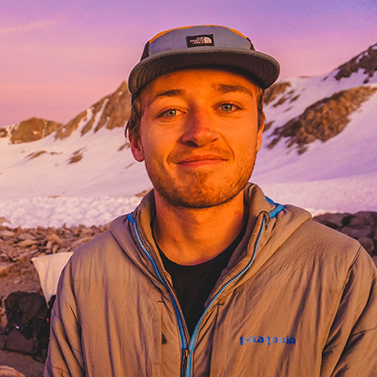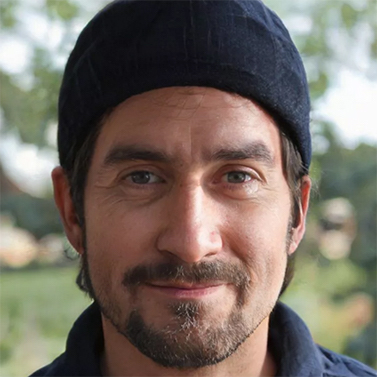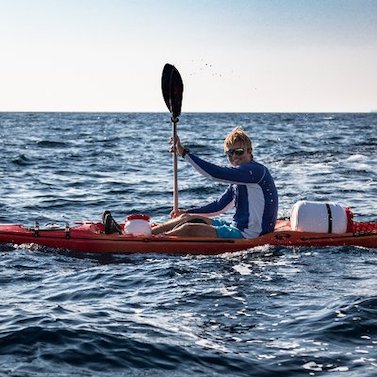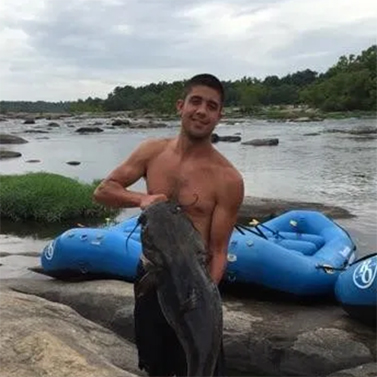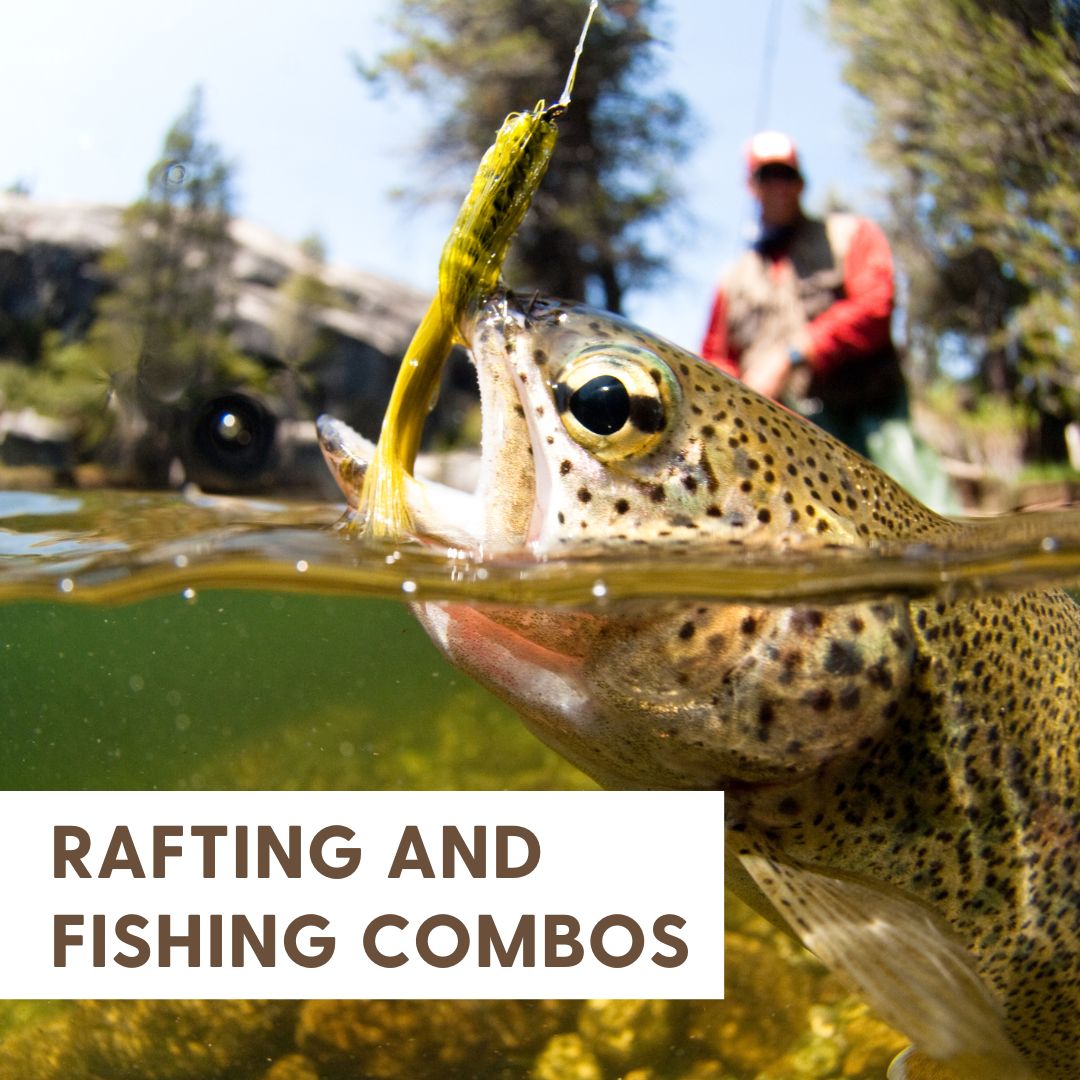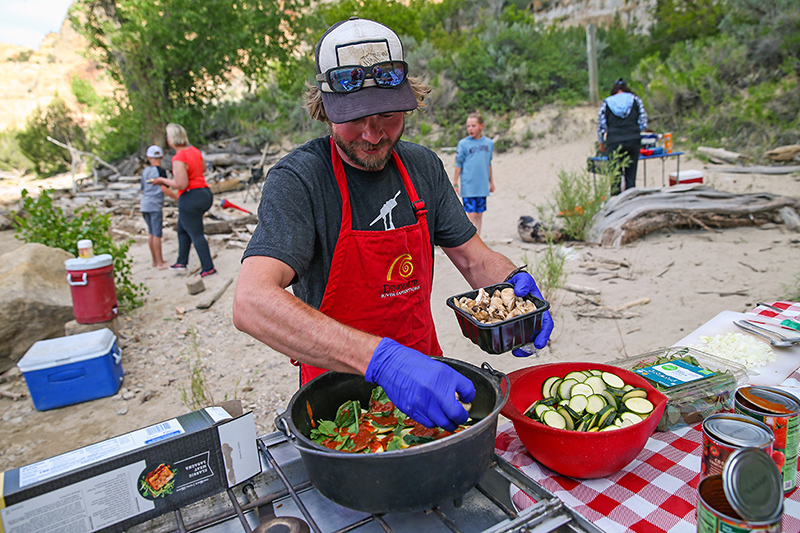Outdoor enthusiasts have a natural desire to explore new places and see new sights. While many destinations are easy to navigate with elementary outdoor skills, it is not hard to find yourself in over your head. Hiring a guide on your next trip offers countless benefits. Keep reading to see what outdoor experts have to say about those benefits.
Brady Fraser
Brady Fraser is an outdoor writer and enthusiast at Two Trailbirds. He loves all activities, from hiking, to snowboarding, to rock climbing, but is primarily a backpacker. He has thru-hiked the John Muir Trail and spends as much time as he can backpacking local trails in the Northwest.
Tips and tricks
Speaking as a backpacker who pushed through the “figuring things out” stage long before ever trying any kind of guided trip, I can say that the biggest things non-guided adventurers are missing out on are accelerated learning and a sense of direction. When you first decide to [follow in the footsteps of] your favorite Instagrammer and go backpacking, it can be challenging because you don’t even really know what backpacking is. Having someone with a deeper understanding by your side to “guide” your experience can help you get a feel for not only how to do it but how to appreciate it. They’re great at making new and difficult experiences feel more comfortable, which ultimately will give you more opportunity to appreciate them and more confidence when you set out on your own.
Another seemingly obvious thing, though one that doesn’t become truly apparent until it happens for you, is just how much a guide can accelerate your learning. You can learn tips and tricks in one session with a guide that would have taken you dozens [of trips] to figure out on your own. Even simple things like picking a campsite, setting up a tent, or filtering water can be daunting to a newbie. A guide will make them easy. All of this adds up to better experiences for you in the future and at a much, much faster pace.
Those are the big things that I think people are missing out on if they don’t have a guide.
Bertie Cowan
Bertie Cowan here founder of Effortless Outdoors, an avid hiker, camper, and a lover of everything outdoor-related.
Valuable photo opportunities
As a seasoned hiker, I never recommend hiking alone and always advise taking a guide if the hike will be challenging, you are in an area you don’t know, or don’t have a companion. Here’s why:
- Taking a guide when you don’t have a companion will means you can share the experience. It’s a great feeling to reach the focal point of the hike, maybe staring down at an expansive forest. That feeling is vastly better if you have someone to share the experience with. Certainly, if you are alone, you will miss out on some valuable photo opportunities and will need to settle for a few quick selfies instead.
- Some hikes can be quite a challenge to the point of being dangerous if they are beyond your ability or experience level. Taking a guide with you means you can draw from his knowledge of the area and experience. The guide can offer alternatives to a route that would be impossible for you to pass. Hitting a vertical wall with only hooks to hold onto may be well beyond some hikers’ abilities, and this is where having an experienced local guide with you really does pay off.
- Without in-depth knowledge of the hike, you will find that you miss out on seeing a lot of the local wildlife. An experienced local guide will know where to find or to look for wildlife through the seasons. The guides’ knowledge of nesting spots, grazing areas, and watering holes is really invaluable.
Interesting details
No matter how much thorough planning and research you do, once you get out into the wilderness, it can be difficult to navigate unfamiliar terrain. If you want to make sure you see all the highlights and hidden gems a place has to offer, it’s a really good idea to go with a guide.
The beauty of having a guide with you is that, unlike you, they know the terrain. It’s like the difference between wandering around a new city you’ve never been to before by yourself and having a local show you around and take you to all their favourite spots.
With a guide, you won’t waste any time getting lost or staring at a map trying to figure out which way to go. Saving this time will maximize the amount of activity you can fit into a day.
The main thing, though, is that you won’t miss anything special. An experienced guide will be able to direct your attention to far more interesting details than you’re unlikely to uncover on your own.
Alexandra Vidak
Alexandra Vidak, the General Manager of Adventure Dubrovnik, an outdoor adventures company that currently hosts the #1 (Tripadvisor) ranked kayaking experience in the world.
Information! Context! Confidence! The caveat?
Over the past decade, we’ve seen so many outdoors enthusiasts who are adrenaline junkies. They’re addicted to the thrill of novelty, and they voraciously feed off of new experiences, but just as many people we host are cautious travelers. They crave that new experience but may not have the confidence to venture off on their own.
Some people are just passing through and only have a few hours to take in the sites. As fun as it can be to go guideless, they just don’t have the time to get lost trying to find a hiking trail or paddling through unknown seas.
The obvious perk [to having a guide] – The information! The history! The stories! Guides are literally knowledge incubators. A good guide will have completed an activity multiple times before hosting guests. A great guide will have entertaining stories to back their experience!
All else aside, whether you happen to be traveling with partners, friends, or solo, sometimes it’s just nice to have the company and a unique perspective.
Luke Herrmann
Luke Herrmann runs the YouTube channel & the blog for the Stop Fishing Start Catching brand that’s focused on helping fishermen improve their techniques.
Outdoor knowledge and methods
While the majority of outdoor enthusiasts believe they don’t need help and their skills are sufficient to be successful, which I’m not disagreeing with, but there is something you miss out on by not engaging with a guide.
Depending on where you are exploring the outdoors, the people of that culture or area may have a totally unique way to do certain things (whether that’s fishing, hunting, etc.). For example, I’m sure an outdoor enthusiast can visit Virginia and hook themselves up on a big catfish just fine. However, would an outdoor enthusiast be knowledgeable about other methods of catching catfish, such as noodling?
While an outdoor enthusiast can have a great time without a guide, there is the potential they’ll miss out on so much more by not engaging the guides and experts in that specific region. Most outdoor enthusiasts I know are continually trying to learn, and you are shortchanging yourself by not soaking up as much information as possible from as many sources as possible.
Harpa Gretarsdóttir
Harpa Gretarsdóttir is a marketing representative at Icewear, she has been working in the fashion and retail industry for over 7 years, and specializes in marketing, social media, and PR.
Guide’s inside perspective of the area
If an outdoor enthusiast wants to get under the skin of a country and experience it fully, they would be wise to have a guide accompany them. Otherwise, they will miss out on the guide’s inside perspective of the area/country whilst exploring. This insight includes food, visually stunning routes, and maybe even some local survival techniques. Likewise, safety is a concern as they will not have a guide’s experienced knowledge of the landscape and weather conditions to call upon if accidents happen. Iceland, for example, is full of dangers. You can explore the rugged nature further [with a guide who] will keep you safe, whether on a volcano, near a geyser, or far up on a glacier. The weather on a glacier can change rapidly, and cracks can hide under the seemingly harmless snow, leaving inexperienced people in grave danger.
Not commissioning a guide also limits the fun of communicating with a resident. Language learning can unlock a true understanding of a country’s heritage, or in our case, Iceland’s volcanic and rugged terrain and how this plays into folklore and history. The knowledge you’ll receive from a guide is worth any money you exchange for their time. A pile of rocks along the route of your hike could actually be a key milestone in the journey of a country’s hero. You may also miss secret paths and caves. It’s always worth using experts where possible.
Knowledge and experience
I personally believe it is better to have a local guide to guide you on treks because they know the land more than your TripAdvisor site. This is vital knowledge and experience from people who have explored these forests and lands more times than you’ve traveled there. So, why waste time trying to find something yourself when they can guide you directly to it while giving some fun history behind it. Not to mention, most guides have certifications in providing proper medical care in the event of an accident. Don’t risk your life [because of] your pride. Time is money. Make the most of your vacation. Be safe and trust the locals. They live there; you don’t. Support the land in supporting those who take care of it.
Experiences
Whether you’re spending time outdoors on a fishing trip, hunting trip, or even a simple hike, there is no one who has the experience and area knowledge like a captain, outfitter, or guide, respectively. A guide’s job is to enhance your experience and help you to truly immerse yourself in all of the things that you’ll inevitably be exposed to. From fauna and flora to site history, a guide is the best way to tap into the heart of the area you’re exploring.
This is a crowdsourced article. Contributors are not necessarily affiliated with this website and their statements do not necessarily reflect the opinion of this website, other people, businesses, or other contributors.
